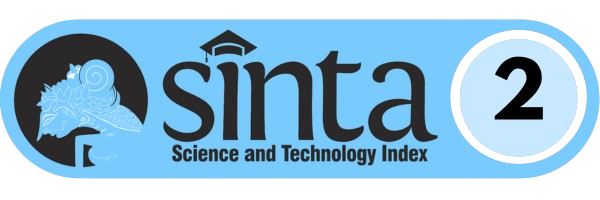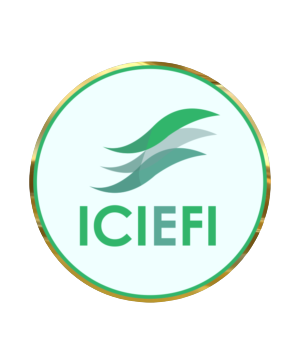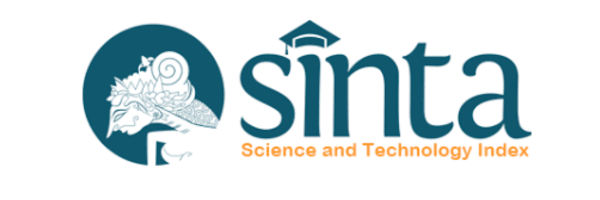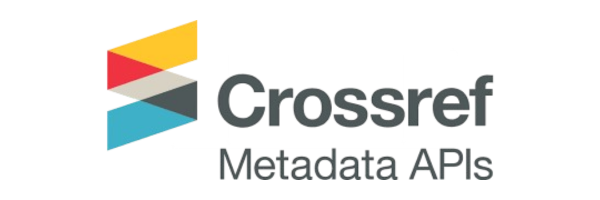The Synergy of Entrepreneurship Education, Family Environment, and Income Expectations: A Key to Shaping Entrepreneurial Attitudes and Intentions Among the Millennial Generation
DOI:
https://doi.org/10.24269/ekuilibrium.v20i2.2025.pp376-389Keywords:
Entrepreneurship Education, Family Environment , Income Expectations , Entrepreneurial Attitude, Entrepreneurial IntentionAbstract
The increase in the number of new entrepreneurs has become a crucial strategy in addressing high unemployment rates and accelerating national economic growth. This study aims to analyze the influence of entrepreneurship education, family environment, and income expectations on entrepreneurial intention, while considering the mediating role of entrepreneurial attitude. A quantitative approach was employed using a survey method, involving 412 university students as respondents, with data analyzed through Partial Least Squares (PLS) technique. The results indicate that entrepreneurship education has a direct, positive, and significant effect on shaping students’ entrepreneurial attitudes. Similarly, income expectations significantly contribute to strengthening entrepreneurial attitudes. In contrast, the family environment variable shows no significant relationship with either entrepreneurial attitude or intention. Further findings reveal that entrepreneurial attitude plays a critical mediating role in shaping students’ intentions to start a business. Additionally, both entrepreneurship education and income expectations also exhibit a direct and significant influence on entrepreneurial intention. The novelty of this study lies in mapping the mediating role of entrepreneurial attitude in bridging the relationship between external factors (entrepreneurship education and income expectations) and entrepreneurial intention an area that has not been extensively explored in previous research. The implications of these findings provide a conceptual foundation for higher education institutions in designing more targeted entrepreneurship development strategies.
Downloads
References
Amin L, Fajri A. 2024. Entrepreneurial Self-Efficacy In Entrepreneurial Intention: The Mediating Role Of Entrepreneurial Education. Ekuilibrium J Ilm Bid Ilmu Ekon. 12(4):4017–4024. doi:doi: https://doi.org/10.37676/ekombis.v12i4.
De Bernardi C, Pedrini M. 2020. Entrepreneurial behaviour: Getting eco-drunk by feeling environmental passion. J Clean Prod. 256:120367. doi:10.1016/j.jclepro.2020.120367.
Brahmana RK, Setiawan D, Lau E, Kontesa M. 2024. Do the Characteristics of Startup Founders Matter for Funding Performance? J Indones Econ Bus. 39(3):328–346. doi:10.22146/jieb.v39i3.11841.
Chang FYM, Alam MA, Taylor M. 2025. The mediating and moderating roles of entrepreneurship education in the perceived acquisition of entrepreneurial learning and knowledge. J Innov Knowl. 10(1):100645. doi:10.1016/j.jik.2024.100645.
Chauhan S, Chauhan K, Singh Saurabh, Mahlawat S, Kumar V, Singh Sumanjeet. 2024. Analyzing family support mediating role between motivational factors and sustainable entrepreneurial intentions: A study on university students. Sustain Technol Entrep. 3(3):100076. doi:10.1016/j.stae.2024.100076.
Dharmawan GSB, Zainal VR, Nurhayati M, Suprapto. 2024. Linking responsible leadership and sustainable performance through the mediation of maintenance management implementation and agile organization. J Infrastructure, Policy Dev. 8(7):1–19. doi:10.24294/jipd.v8i7.4708.
Fatah S, Usman H. 2024. Kangaroo Market Phenomenon: Identification and Impact on Indonesia’s Economic Growth. Ekuilibrium J Ilm Bid Ilmu Ekon. 19(2):289–308. doi:10.24269/ekuilibrium.v19i2.2024.pp289-308.
Fisher G, Stevenson R, Burnell D. 2020. Permission to hustle: Igniting entrepreneurship in an organization. J Bus Ventur Insights. 14 May:e00173. doi:10.1016/j.jbvi.2020.e00173.
Gazi MAI, Mim AT, Masud A Al, Rahman MKH, Amin M Bin, Senathirajah AR bin S, Oláh J. 2025. Paving the way of entrepreneurship for university students: the role of innovativeness, technological adaptability, and self-management, with risk-taking and family support as moderator. Cogent Educ. 12(1). doi:10.1080/2331186X.2025.2455230.
Gregori P, Holzmann P, Wdowiak MA. 2021. For the sake of nature: Identity work and meaningful experiences in environmental entrepreneurship. J Bus Res. 122 October 2019:488–501. doi:10.1016/j.jbusres.2020.09.032.
Hutasuhut S, Aditia R, Thamrin. 2024. The mediating role of entrepreneurial orientation: the impact of entrepreneurship education and patriarchal culture on entrepreneurial intention among Indonesian university students. Cogent Bus Manag. 11(1). doi:10.1080/23311975.2024.2369156.
Jintana S, Boonlab S, Supromin C. 2025. Enhancing digital-era entrepreneurial intentions: a strategic model for university students. Cogent Bus Manag. 12(1). doi:10.1080/23311975.2025.2494293.
Kartikasari D, Zuliarni S, Hati SW, Anggraini R, Sari DR, Andayani NR. 2025. What Drives Youth To Shop for Local Fashion Online? Extending the Planned Behavior Theory and Ethnocentrism. J Indones Econ Bus. 40(1):57–74. doi:10.22146/jieb.v40i1.9131.
Kementrian Koperasi dan UKM. 2020. Menkop dan UKM Paparkan Skema Pemulihan Ekonomi KUMKM di masa dan pasca Covid 19. J Chem Inf Model.
Kottler B, Faville R, Bridi JC, Hirth F. 2019. Inverse Control of Turning Behavior by Dopamine D1 Receptor Signaling in Columnar and Ring Neurons of the Central Complex in Drosophila. Curr Biol.
Lopez T, Alvarez C, Urbano D. 2025. Understanding institutional dimensions in high-impact female entrepreneurship. Rev Manag Sci.
Mendoza G, Llopis J, Gasco J, Gonzalez R. 2021. Entrepreneurship as seen by entrepreneurs in a developing country. J Bus Res. 123 October 2020:547–556. doi:10.1016/j.jbusres.2020.10.038.
Montes J, Ávila L, Hernández D, Apodaca L, Zamora-boza S, Cordova-buiza F. 2025. The influence of role models and entrepreneurial support on the business start-up intentions of women and men. Cogent Bus Manag. 12(1). doi:10.1080/23311975.2025.2466069.
Mujtaba G, Zulkiffli SN ‘Atikah, Padlee SF, Mohamed WN, Sukri NKA. 2025. Impact of Entrepreneurial Inspiration, Awareness, and Skills on University Students’ Entrepreneurial Intentions: The Mediating Role of Entrepreneurial Education. Adm Sci. 15(1). doi:10.3390/admsci15010015.
Nayati H, Wulida T. 2025. The Influence of Knowledge Management and Learning Organization on Competitive Advantage in Startups in Malang City with Organizational Creativity as a Mediating Variable ( A Study on Startup Companies at Stasion Malang ). Ekuilibrium J Ilm Bid Ilmu Ekon. 20(1):1–23. doi:10.24269/ekuilibrium.v20i1.2025.pp1-23.
Pan L, Li J, Du T, Hu Z, Ye JH. 2025. How positive emotions affect entrepreneurial intention of college students: A moderated mediation model. Heliyon. 11(4). doi:10.1016/j.heliyon.2025.e42842.
Purnomo RA, Malynka O, Prananto A. 2023. Sustainable Business Development Via Applying an Online Business Model for Gaining Benefit in Economics, Education, and Social Network. Ekuilibrium J Ilm Bid Ilmu Ekon. 18(1):1–10. doi:10.24269/ekuilibrium.v18i1.2023.pp1-10.
Riyanti Y, Dewi RM. 2024. The Influence of Entrepreneurship Education, Entrepreneurial Motivation, And Income Expectations on Entrepreneurial Interest. JMET J Manag Entrep Tour. 2(2):276–283. doi:10.61277/jmet.v2i2.144.
Rustiana. 2025. Entrepreneurship Education and Other Exogenous Variables in the Theory of Planned Behavior Model: a Systematic Literature Review. J Indones Econ Bus. 40(1):140–163. doi:10.22146/jieb.v40i1.10323.
Spivack AJ, McKelvie A. 2021. Measuring addiction to entrepreneurship. J Bus Ventur Insights. 15 November 2020:e00212. doi:10.1016/j.jbvi.2020.e00212.
Sugiyono D. 2018. Metode penelitian kuatintatif , kualitatif dan R & D, Jakarta.
Sujianto AE, Mashudi M, Khansa A. 2024. Environmental Factors in Affecting Student Entrepreneurship Decision. Ekuilibrium J Ilm Bid Ilmu Ekon. 19(1):59–72. doi:10.24269/ekuilibrium.v19i1.2024.pp59-72.
Suprapto, Herta A. 2018. Entrepreneurship education as the molding of entrepreneurial attitudes: A case study. Int J Econ Bus Adm. 6(3):127–135. doi:10.35808/ijeba/169.
Suprapto. 2020. Creating of Student Entrepreneurship Intentions in Jakarta: A Case Study. Atl Press Adv Econ Bus Manag Res. 120 Icmeb 2019:63–66. doi:10.2991/aebmr.k.200205.013.
Suprapto, Kaidah S, Ngah AH. 2022. Implementation of Business Management for Sustainability and Business Development Micro, Small and Medium Enterprises (MSMES). Int Conf Comunity Dev. 4(1):256–261.
Tan HS. 2025. The Relationship between Entrepreneurial Attitude , Entrepreneurial Education, and Entrepreneurial Intentions of Millennial College Students , Entrepreneurial Self-Efficacy as a Mediator. Bus Manag Strateg. 16(1):61–75. doi:10.5296/bms.v16i1.22480.
Wibowo A, Maula DI, Setiawan DF, Hisam M. 2024. Rural Government Cooperation Intensity and Leadership in Fostering the Innovation Capabilities of Rural Microbusinesses. J Indones Econ Bus. 39(3):282–307. doi:10.22146/jieb.v39i3.10068.
Xanthopoulou P, Sahinidis A. 2024. Students’ Entrepreneurial Intention and Its Influencing Factors: A Systematic Literature Review. Adm Sci. 14(5). doi:10.3390/admsci14050098.
Yzer M. 2017. Theory of Reasoned Action and Theory of Planned Behavior. The International Encyclopedia of Media Effects.
Zhang H, Lu L, Sun F. 2021. Changing role of lifestyle in tourism entrepreneurship: Case study of Naked Retreats Enterprise. Tour Manag. 84(189):104259. doi:10.1016/j.tourman.2020.104259.
Zhang HX, Chen H. 2024. Entrepreneurship Education and Entrepreneurial Intention Among Tourism and Hotel Management Students: The Mediating Role of Entrepreneurial Self-Efficacy and the Moderating Role of Grit. SAGE Open. 14(2):1–13. doi:10.1177/21582440241249119.
Downloads
Published
How to Cite
Issue
Section
License

This work is licensed under a Creative Commons Attribution-ShareAlike 4.0 International License.
Retained Rights/Terms and Conditions of Publication
1. As an author you (or your employer or institution) may do the following:
- make copies (print or electronic) of the article for your own personal use, including for your own classroom teaching use;
- make copies and distribute such copies (including through e-mail) of the article to research colleagues, for the personal use by such colleagues (but not commercially or systematically, e.g. via an e-mail list or list server);
- present the article at a meeting or conference and to distribute copies of the article to the delegates attending such meeting;
- for your employer, if the article is a ‘work for hire’, made within the scope of your employment, your employer may use all or part of the information in the article for other intra-company use (e.g. training);
- retain patent and trademark rights and rights to any process, procedure, or article of manufacture described in the article;
- include the article in full or in part in a thesis or dissertation (provided that this is not to be published commercially);
- use the article or any part thereof in a printed compilation of your works, such as collected writings or lecture notes (subsequent to publication of the article in the journal); and prepare other derivative works, to extend the article into book-length form, or to otherwise re-use portions or excerpts in other works, with full acknowledgement of its original publication in the journal;
- may reproduce or authorize others to reproduce the article, material extracted from the article, or derivative works for the author's personal use or for company use, provided that the source and the copyright notice are indicated, the copies are not used in any way that implies RCEPM-LIPI endorsement of a product or service of any employer, and the copies themselves are not offered for sale.
All copies, print or electronic, or other use of the paper or article must include the appropriate bibliographic citation for the article's publication in the journal.
2. Requests from third parties
Although authors are permitted to re-use all or portions of the article in other works, this does not include granting third-party requests for reprinting, republishing, or other types of re-use. Requests for all uses not included above, including the authorization of third parties to reproduce or otherwise use all or part of the article.
3. Author Online Use
- Personal Servers. Authors and/or their employers shall have the right to post the accepted version of articles pre-print version of the article, or revised personal version of the final text of the article (to reflect changes made in the peer review and editing process) on their own personal servers or the servers of their institutions or employers without permission from Universitas Muhamamdiyah Ponorogo, provided that the posted version includes a prominently displayed Universitas Muhamamdiyah Ponorogo copyright notice and, when published, a full citation to the original publication, including a link to the article abstract in the journal homepage. Authors shall not post the final, published versions of their papers;
- Classroom or Internal Training Use. An author is expressly permitted to post any portion of the accepted version of his/her own articles on the author's personal web site or the servers of the author's institution or company in connection with the author's teaching, training, or work responsibilities, provided that the appropriate copyright, credit, and reuse notices appear prominently with the posted material. Examples of permitted uses are lecture materials, course packs, e-reserves, conference presentations, or in-house training courses;
- Electronic Preprints. Before submitting an article to an Ekuilibrium: Jurnal Ilmiah Bidang Ilmu Ekonomi, authors frequently post their manuscripts to their own web site, their employer's site, or to another server that invites constructive comment from colleagues. Upon submission of an article to Ekuilibrium: Jurnal Ilmiah Bidang Ilmu Ekonomi, an author is required to transfer copyright in the article to Economy Faculty Universitas Muhammadiyah Ponorogo, and the author must update any previously posted version of the article with a prominently displayed Economy Faculty Universitas Muhammadiyah Ponorogo copyright notice. Upon publication of an article by the Universitas Muhammadiyah Ponorogo, the author must replace any previously posted electronic versions of the article with either (1) the full citation to the work with a Digital Object Identifier (DOI) or link to the article abstract in Ekuilibrium: Jurnal Ilmiah Bidang Ilmu Ekonomi journal homepage, or (2) the accepted version only (not the final, published version), including the Economy Faculty Universitas Muhammadiyah Ponorogo copyright notice and full citation, with a link to the final, published article in journal homepage.
4. Articles in Press (AiP) service
Economy Faculty Universitas Muhammadiyah Ponorogo may choose to publish an abstract or portions of the paper before we publish it in the journal. Please contact our Production department immediately if you do not want us to make any such prior publication for any reason, including disclosure of a patentable invention.
5. Author/Employer Rights
If you are employed and prepared the article on a subject within the scope of your employment, the copyright in the article belongs to your employer as a work-for-hire. In that case, Economy Faculty Universitas Muhammadiyah Ponorogo assumes that when you sign this Form, you are authorized to do so by your employer and that your employer has consented to the transfer of copyright, to the representation and warranty of publication rights, and to all other terms and conditions of this Form. If such authorization and consent has not been given to you, an authorized representative of your employer should sign this Form as the Author.
6. RCEPM-LIPI Copyright Ownership
It is the formal policy of Economy Faculty Universitas Muhammadiyah Ponorogo to own the copyrights to all copyrightable material in its technical publications and to the individual contributions contained therein, in order to protect the interests of the Economy Faculty Universitas Muhammadiyah Ponorogo, its authors and their employers, and, at the same time, to facilitate the appropriate re-use of this material by others. Economy Faculty Universitas Muhammadiyah Ponorogo distributes its technical publications throughout the world and does so by various means such as hard copy, microfiche, microfilm, and electronic media. It also abstracts and may translate its publications, and articles contained therein, for inclusion in various compendiums, collective works, databases and similar publication.
7. Licensing Terms
Ekuilibrium is licensed under a Creative Commons Attribution-ShareAlike 4.0 International License.
Permissions beyond the scope of this license may be available at https://journal.umpo.ac.id/











